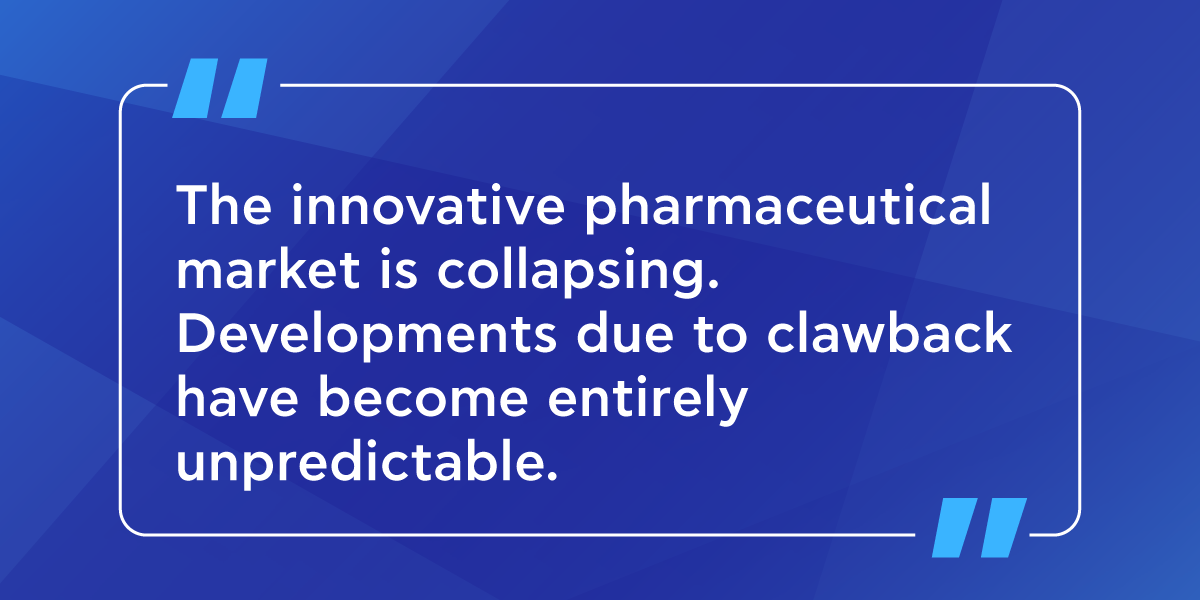Fewer than 2 out of 10 treatments are covered by the state, severely limiting patients’ access to innovative and critical therapies.
Following the meeting between the Minister of Health, Mr. Adonis Georgiadis, and the pharmaceutical industry associations, the issue of mandatory clawback payments for the first half of 2023 is being hastily addressed, with the government’s only initiative being an additional €20 million and a limited adjustment to the discounts or exemptions enjoyed by medicines priced under €30.
The 26 member companies of the PhARMA Innovation Forum Greece (PIF) state the obvious. When the government admits that it covers innovative hospital treatments for fewer than 2 out of 10 patients with serious chronic conditions, this issue must not be swept under the rug. Instead, it should serve as the starting point for urgent, drastic interventions. We expect the government to recognize that the 83% mandatory clawback in hospitals -coupled with the continuous increase in the clawback on innovative medicines under EOPYY- is a dangerous admission of failure of the clawback policy, a measure introduced under the bailout agreement. The pharmaceutical policy built on the shaky foundation of the clawback since 2012 is now collapsing spectacularly and endangers patients’ access to both available and new innovative therapies today, not in the distant future.
Rather than “closing the issue,” we urge the government to begin an honest dialogue today for a sustainable pharmaceutical policy, which is both a social and public health necessity. This must be achieved through a combination of pricing and structural reforms that will reduce overall medicines spending -without protectionism- while increasing the public budget to allow for the substitution cycle to function as it does in any modern healthcare system.
The government’s determination and political will to take this necessary step for public health will be evident first and foremost in the 2023 budget. In this context, the PhARMA Innovation Forum Greece reiterates its stance that correcting last year’s clawback to at least the 2022 level is the minimum action required for the state and the pharmaceutical industry to restore trust and jointly move forward with the necessary -and often difficult- decisions to reform pharmaceutical policy, with patients and the resilience of the healthcare system at the forefront.
Following the meeting of the PhARMA Innovation Forum Greece with the Minister of Health, Mr. Adonis Georgiadis, President of PIF, Labrina Barmpetaki stated “The interventions announced by the Ministry of Health are extremely limited and in no way address the 83% clawback crisis or the risks it poses for patients, our products, and our companies. This means that we cannot guarantee the future, as developments have become entirely unpredictable. We are far from solving the problem and continuing the dialogue for a fair and effective framework for cooperation requires both will and action from both sides. We have done our duty. Now it is time for the government to do theirs.”.
As a forum of 26 biopharmaceutical companies with a significant footprint in the Greek economy, we demand the retroactive correction of the 83% clawback, with the addition of new resources, ensuring that the rate does not exceed the 2022 level -an essential threshold that will allow for the smooth operation of businesses and patients’ access to innovative treatments. An 83% clawback essentially means that the state covers the cost of treatment for fewer than 2 out of 10 patients suffering from serious -and often life threatening- chronic diseases, while the remaining 8 patients receive medication only because pharmaceutical companies cover the cost through mandatory clawbacks.
#ProtectPublicHealth #HealthOverClawback









